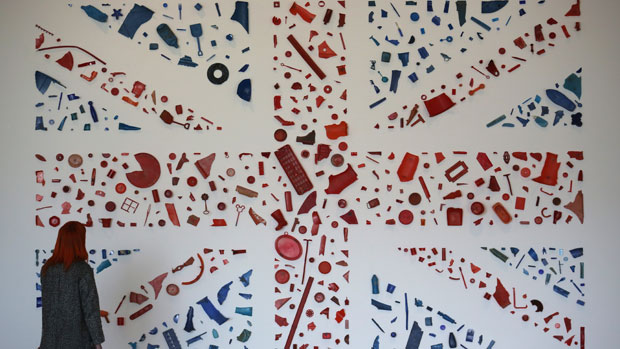Arts Council pleads for end to cuts – but should taxes fund art?
Council chief warns that arts cuts damage our culture, while some critics say that public money can stifle creativity

A free daily email with the biggest news stories of the day – and the best features from TheWeek.com
You are now subscribed
Your newsletter sign-up was successful
The new head of Arts Council England has urged the government to halt any further cuts to arts funding, warning that cost-cutting could undermine culture throughout the country.
Although his comments will receive widespread support, not all in the arts world agree with him. Some critics argue that public funding leads to stale, uninspiring work, and suggest that Britain's cultural landscape would be healthier if subsidies were rooted out entirely.
Speaking in Hull, in his first official outing as Arts Council chief executive, Darren Henley said that the arts made a difference "educationally, socially and economically." He said that Hull had experienced real "cultural growth" as it prepared to take on the mantle of UK City of Culture in 2017, the BBC reports.
The Week
Escape your echo chamber. Get the facts behind the news, plus analysis from multiple perspectives.

Sign up for The Week's Free Newsletters
From our morning news briefing to a weekly Good News Newsletter, get the best of The Week delivered directly to your inbox.
From our morning news briefing to a weekly Good News Newsletter, get the best of The Week delivered directly to your inbox.
Henley also drew attention to recent initiatives including music education hubs, tax breaks for theatres and orchestras, and investment in cultural venues in Manchester. But he warned that that growth could be undermined by ongoing cuts, which have resulted in a 36 per cent cut to the Arts Council's government grant since 2010.
"Progress is only sustainable with the long-term commitment of grant in aid," said Henley. "To have other success stories like Hull, we need the government to continue to make a significant commitment to arts and culture."
On What's On Stage, Matt Trueman agrees that cuts are threatening the arts in Britain. Few emerging artists can command sizeable audiences and cover the cost of new work, he says, so the cuts will result in larger organisations and venues becoming kingmakers and gatekeepers. "They get to decide which emerging and independent artists get the opportunities to keep making work," he says.
The problem cuts deeper than that, says The Guardian's art critic Jonathan Jones, who fears that the Conservatives' continued cuts could reduce the country's arts to a national joke.
A free daily email with the biggest news stories of the day – and the best features from TheWeek.com
Jones points to National Gallery services being privatised, a series of strikes by poorly paid staff, long queues and rooms closed.
Many would dismiss the concerns of a few culture vultures, says Jones. "That's how the philistine number crunchers will see it," but they are ignoring "the huge amount of 'soft power' the arts bring Britain.
But in the Daily Telegraph, theatre critic Douglas McPherson argues that arts funding can actually stifle creativity and innovation.
"I have a simple plea for culture minister Ed Vaizey: stop all public funding of the arts, now!" he writes. The critic complains that looking back over his career as a reviewer, he "can't think of one funded show that was any good, while every day the world of commercial entertainment throws up work that is new, vibrant, creative and exciting without any need for government help".
Macpherson argues that arts funding creates a culture of long term state dependency, where companies focus more on securing their salaries than on producing work the public might actually want to see. He says he would rather support tax breaks for artists than funding.
Hear hear, says Rupert Christiansen, also in the Daily Telegraph. Despite the cuts over the past six years of austerity, the arts sector as a whole has proved admirably resilient and resourceful in finding ways to survive and even flourish. "Being slightly hungry sharpens the wits and speeds you up," he says.
-
 Political cartoons for February 16
Political cartoons for February 16Cartoons Monday’s political cartoons include President's Day, a valentine from the Epstein files, and more
-
 Regent Hong Kong: a tranquil haven with a prime waterfront spot
Regent Hong Kong: a tranquil haven with a prime waterfront spotThe Week Recommends The trendy hotel recently underwent an extensive two-year revamp
-
 The problem with diagnosing profound autism
The problem with diagnosing profound autismThe Explainer Experts are reconsidering the idea of autism as a spectrum, which could impact diagnoses and policy making for the condition